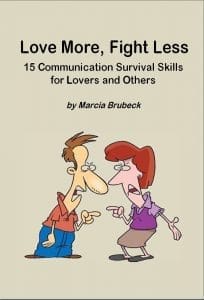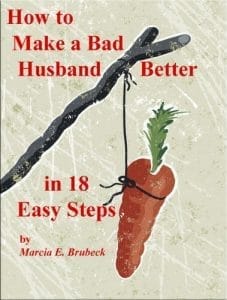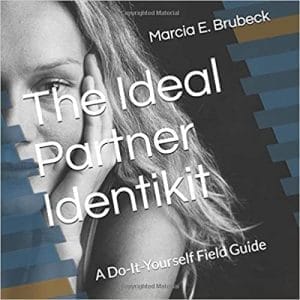
How Can I Ever Forgive You?
Carol and Eric, married for twenty years and with children at home, came to see me on the brink of divorce. Carol was seething with a cold rage. Eric was penitent, in obvious pain, desperate to save their marriage.
Carol said, “We both know we had a sacred agreement. You broke it. We promised to honor each other for life. You went outside our relationship to have sex not once but several times.
“It was hard for me to get past the pain and the anger the first time. What do I do with the other times? You say you want us to repair the damage and stay together, but how can I ever again trust you?
“How can you expect me to forgive you?”
As always with the struggling couples I see for therapy, the problem is communication. With infidelity, as in other matters, there are two sides to the issue.
The transgressor may have tried many times, over a period of years, to tell the spouse that something needs to give. The spouse somehow did not hear the request or did not see the urgent need to make changes. Alternatively, the transgressor has been tongue tied, uncertain how to broach the topic but feeling underappreciated or unloved.
In both scenarios, cheating precipitates a crisis and an opportunity to solve the problem. There’s no way things can be the same afterward.
All too often the injured spouse feels blameless, an unwitting victim. “How could you do this to me?” Carol asks. Another question to ask would be why, if their relationship was not fulfilling the needs of both, the two of them did not address the problem together and forestall the crisis.
When one party acts unilaterally within the domain of their relationship, they are no longer operating as a couple. Why would one spouse want to look for comfort outside the marriage?
As a couples counselor I believe that a marriage can be saved as long as both people are determined to save it. When one of them throws in the towel, though, it’s time for termination work, where both parties prepare to part company amicably. One person cannot make a relationship singlehandedly. It takes two.
At times both people want to fix things, but forgiveness seems impossibly hard. How can one or both of them grieve the loss and get past the rage and the hurt?
As a first step, the transgressor must make a full confession. The spouse must believe that no information about what happened is being withheld. The person who cheated must vow never again to go outside the marriage, and he or she must make a sincere and heartfelt apology.
In the ensuing weeks and months, the transgressor will need to show sensitivity to the feelings and preferences of the spouse and to demonstrate trustworthiness at every opportunity. It will be necessary to revisit the offense from time to time, to gauge progress in restoring the relationship, and possibly to correct course. The period of reparations may resemble a second courtship in some ways.
The injured party will need to offer guidance and feedback during the process. It can feel hard to forgive. To develop the capacity, it can help to ask the questions listed below, which I have expressed in the voice of the spouse who feels betrayed.
1. What feelings could have prompted you to do such a terrible thing? When, if ever, have I had these same feelings myself (even if I behaved differently)?
2. Did I somehow make your offense possible, perhaps passively, by failing to respond to a request you made, or actively, by doing something objectionable that you resented and tolerated in silence?
3. If I don’t forgive you, will my righteous indignation and condemnation weigh me down? Does the pain of the injury you inflicted warrant my giving up on our relationship altogether?
4. It is not up to me to judge you. If my hurt feelings lead me to withhold forgiveness, will I be doing so in order to cause you pain? Does your wrongdoing loom larger in my eyes because it reinforces doubts that I have about my self-worth or my sex appeal? When you transgressed, were you reproaching me, or were you trying to compensate for your own feelings of inadequacy?
5. If I don’t forgive you, will I remember my decision when I seek forgiveness from someone I have wronged? I have my own catalog of past mistakes. Can I expect to be forgiven for a failure to forgive?
6. If I forgive you even though I really believe you wronged me, will I be able to move beyond the injury, seeing it as bad but past and over with? Can I separate your mistake (and your disrespect) from my identity and sense of self-worth?
7. By forgiving you could I improve our ability to collaborate? Once trust grows between us, could mutual acceptance strengthen our relationship? Could we treat this crisis and any future crises in our relationship as problems we must solve jointly?
8. In reviewing my own life, can I acknowledge the mistakes I made that harmed others? Can I recognize that I, like you and everyone else, am more than the worst things I have ever done?
9. Can I acknowledge that your mistakes, while different from my own, like mine stand merely as humbling reminders of human fallibility?
10. Can I forgive you and myself in a spirit of love, believing that we are all doing the best we can from moment to moment, even when our best seen in hindsight doesn’t look so good? Can our marriage again bring joy and love, as recrimination cannot?
11. Going forward, can you and I help each other brave the insults and injuries of daily life without seeking payback? Can we take pride in our resilience and have faith that our inner resources will tide us over now and in the future?





